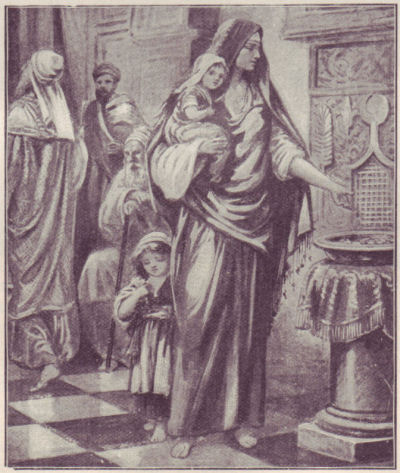On the contrary, our professor comes to teach at Fuller, here in California, by way of a church in upper Manhattan populated mostly by homeless and marginalized people. After doing a teaching on this passage about the widow's offering at his church one morning, an African American man approached him afterwards and said in reference to the poor widow something along the lines of, "That bitch is gettin' ripped off."
Wow! What a contrast. Maybe Jesus wasn't really praising her after all, but instead he was critiquing a system that was full of flaws and systemic evil. He had just finished talking to the scribes in the prior verses about their hypocrisy. Also, the temple money system worked by people giving money/alms to the temple which the temple authorities were then supposed to give to the people in the community who were in need. Unfortunately, it didn't quite work this well. So that, the leaders of the temple, i.e. the Scribes and Pharisees, were outwardly religious and pious, but inwardly straying from God's original commands as set forth in the law.
In this way, her generosity toward an institution that is meant to provide for her but instead maligns her is not only foolish, but lamented by Jesus. This is a text that introduces us to new questions about what it means to be poor in the first century world and likewise, what it means to be poor today. The nuance in the text that is to be uncovered by Jesus' sentiments towards her when compared to her fellow patriots, who give out of their abundance, is the misfortune that she is forced, by her very devotion to God, to participate in a system that promotes injustice tempered with a (false?) promise of spiritual blessing for giving all that she has to share.
There is so much that we miss in our white, educated, suburban worlds? How, then, does this messianic lamentation speak truth into our ecclesial structures and the systemic injustices they may or may not promote today?
(Oh man, I've never even thought about the widow being a young, single mother...that adds entirely new, deeper dimensions to the issue! It's actually made me tear up a little.)



No comments:
Post a Comment